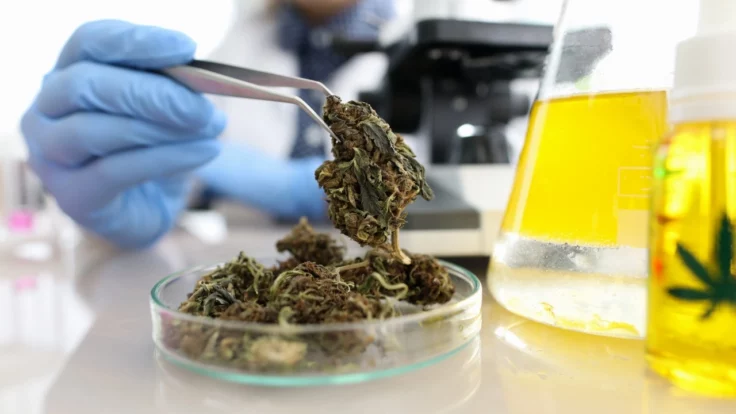CSU’s Institute of Cannabis Research Invests $800,000 in Groundbreaking Studies
LOS ANGELES- The Institute of Cannabis Research (ICR) at Colorado State University (CSU), Pueblo, has announced a significant investment in cannabis research, earmarking $800,000 for six pioneering studies. This initiative, funded through the Colorado Marijuana Tax Cash Fund since 2019, underscores Colorado’s commitment to advancing scientific understanding of cannabis and its impacts.
These studies, conducted in collaboration with the University of Colorado (UC), cover a broad spectrum of topics ranging from CBD’s effects on Autism Spectrum Disorder to the development of new methods for measuring cannabis impairment in drivers. The diversity of these research projects highlights the multifaceted nature of cannabis and its potential applications and challenges in modern society.
One of the most notable studies, led by Dr. Nicole Tartaglia of UC Anshutz Medical Campus, focuses on the potential of Cannabidiol (CBD) as a treatment for behavioral difficulties in children with autism. This research aims to compare endocannabinoid levels in autistic children before and after CBD treatment, offering insights into the compound’s therapeutic potential.
Another study, co-led by Dr. Jessica Prenni and Dr. Tiffany Weir, delves into the interactions between phytocannabinoids and the human gut microbiota. This research could pave the way for new treatments targeting intestinal and systemic inflammation.
Addressing public health concerns, Dr. Alison Pauer’s study investigates the production of carcinogenic polycyclic aromatic hydrocarbons (PAHs) in vaped or dabbed cannabis products. This study is particularly timely, considering the vitamin E acetate-related illnesses reported in 2019.
From a law enforcement perspective, CSU’s Dr. Hollis Karoly and Dr. Patti Davies are exploring the use of electroencephalography (EEG) to differentiate between cannabis and alcohol impairment in drivers. This research could lead to more accurate roadside testing methods.
In the agricultural domain, Dr. Williem Baurerle’s study focuses on optimizing water and nutrient use in cannabis cultivation, aiming to enhance sustainability and efficiency in the industry.
Finally, Dr. David Root from UC Boulder is investigating the neurobiological mechanisms behind THC’s addictive properties. This study seeks to understand how certain neurons in the brain’s reward system are affected by THC.
Under the direction of ICR director Chad Kelly, these studies represent a broader commitment by Colorado to spearhead cannabis research. In an interview with Westword, Kelly expressed enthusiasm for the outcomes of these studies and the necessity for continued research.
Since its inception in 2015, the ICR has been at the forefront of cannabis research, completing 40 studies since 2018 and funding 15 more in the last two years. This substantial investment in diverse research areas highlights the state’s dedication to understanding the complexities of cannabis and its potential benefits and risks. As these studies progress, they are set to offer valuable insights into the medical, societal, and environmental aspects of cannabis use and cultivation, contributing significantly to the evolving landscape of cannabis knowledge and policy.


































